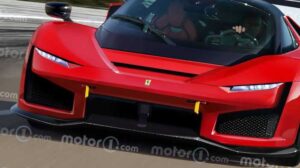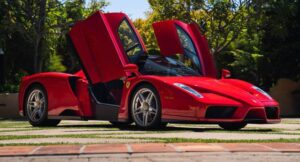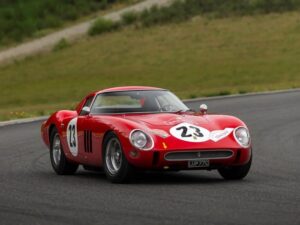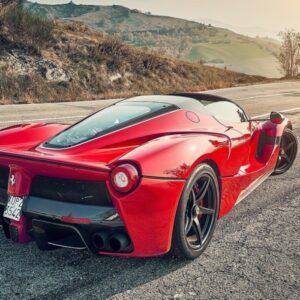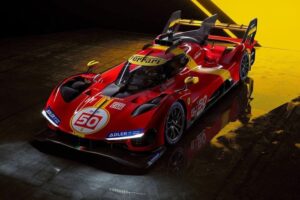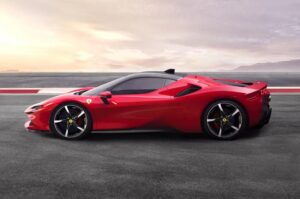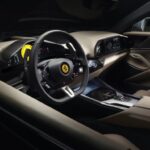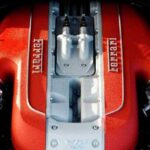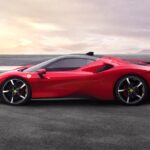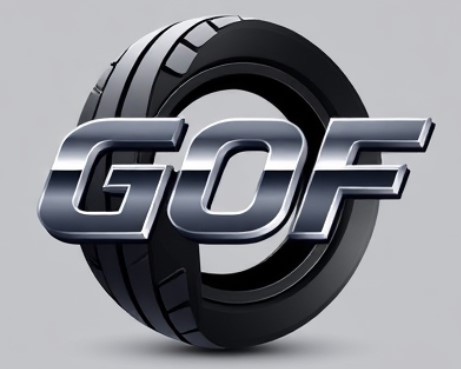Best all-wheel-drive cars by Subaru: Subaru’s dominance in the all-wheel-drive market stems from decades of engineering innovation, culminating in the renowned Symmetrical All-Wheel Drive system. This article delves into the history, technology, performance, and safety features of Subaru’s AWD vehicles, exploring popular models and providing insights into ownership costs. We’ll compare various AWD systems, analyze handling characteristics, and examine the safety features that have become synonymous with the Subaru brand.
From the compact Crosstrek to the rugged Outback and the performance-oriented WRX, Subaru offers a diverse range of AWD vehicles catering to various lifestyles and budgets. This comprehensive guide will equip prospective buyers with the knowledge to make informed decisions, considering factors such as fuel efficiency, safety ratings, and long-term maintenance costs.
Subaru’s All-Wheel-Drive Dominance: Best All-wheel-drive Cars By Subaru
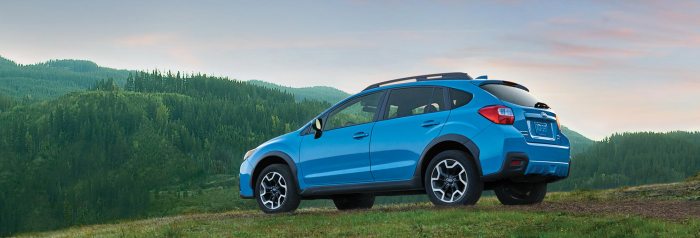
Also Read
Subaru’s reputation is inextricably linked to its all-wheel-drive (AWD) systems. This isn’t merely a marketing ploy; it’s a core element of the brand’s identity, influencing vehicle design, performance, and overall driving experience. This article delves into the intricacies of Subaru’s AWD technology, exploring its history, technical advantages, performance across diverse conditions, and its integration into the brand’s diverse model lineup.
Subaru’s Symmetrical All-Wheel Drive System
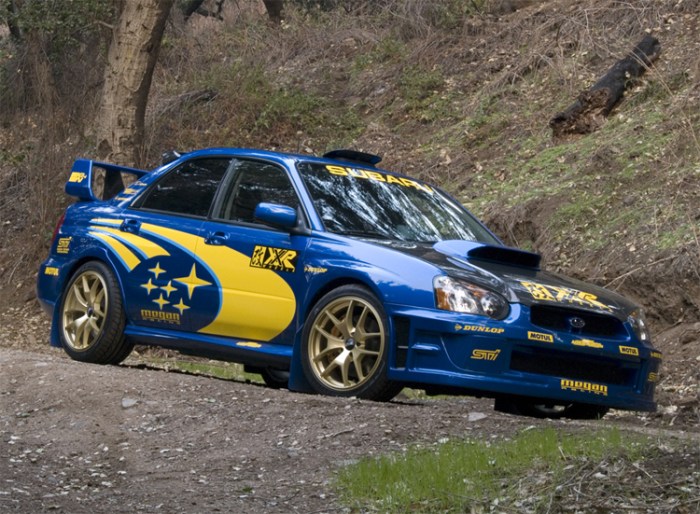
Subaru’s Symmetrical All-Wheel Drive system is a defining characteristic, setting it apart from competitors. Developed over decades, it’s undergone continuous refinement, resulting in a sophisticated and highly effective system. The “symmetrical” aspect refers to the horizontally opposed engine’s placement, which contributes to optimal weight distribution and improved handling. This even weight distribution minimizes body roll during cornering, enhancing stability and control, particularly in challenging conditions.
Technically, Subaru’s AWD systems utilize a continuously variable transfer case (CVT) or a traditional automatic transmission to distribute power between the front and rear axles. Advanced sensors constantly monitor wheel speed and traction, dynamically adjusting the torque distribution to maintain optimal grip. Compared to competitors, Subaru’s system often boasts a higher standard of torque split, enabling superior performance on slippery surfaces.
This system provides exceptional traction on snow, ice, and off-road terrains. On snow and ice, the system allows for controlled acceleration and braking, preventing skids and maintaining stability. In off-road scenarios, the even distribution of power improves climbing ability and reduces wheelspin.
| AWD System | Model Examples | Features | Capabilities |
|---|---|---|---|
| AWD | Impreza, Crosstrek | Standard torque split, electronic stability control | Improved traction in various conditions |
| AWD with X-MODE | Forester, Outback | Enhanced hill descent control, improved off-road capabilities | Superior off-road performance, enhanced hill climbing and descending |
| AWD with SI-DRIVE | WRX, WRX STI (discontinued) | Driver-selectable driving modes, performance-oriented tuning | Optimized handling and performance for different driving styles |
| e-AWD (electric AWD) | Solterra | Electric motors power front and rear axles independently | Instantaneous torque vectoring, enhanced efficiency |
Popular Subaru Models with AWD
Subaru offers a wide range of models equipped with its renowned AWD system, catering to diverse needs and preferences. From compact SUVs to larger wagons, each model provides a unique blend of practicality, performance, and safety features. The following table highlights key specifications of five popular Subaru AWD models, categorized by price range and target audience.
| Model | Price Range | Engine | Fuel Efficiency (EPA est.) | Key Safety Features |
|---|---|---|---|---|
| Impreza | $20,000 – $25,000 | 2.0L Boxer 4-cylinder | 28/36 mpg (city/highway) | EyeSight, Automatic Emergency Braking, Lane Departure Warning |
| Crosstrek | $24,000 – $30,000 | 2.0L Boxer 4-cylinder | 27/34 mpg (city/highway) | EyeSight, Automatic Emergency Braking, Lane Keep Assist |
| Forester | $27,000 – $35,000 | 2.5L Boxer 4-cylinder | 26/33 mpg (city/highway) | EyeSight, Adaptive Cruise Control, Blind Spot Monitoring |
| Outback | $28,000 – $40,000 | 2.5L Boxer 4-cylinder or 2.4L Turbo Boxer 4-cylinder | 25/32 mpg (city/highway)
|
EyeSight, Reverse Automatic Braking, Rear Cross-Traffic Alert |
| Ascent | $34,000 – $45,000 | 2.4L Turbo Boxer 4-cylinder | 20/26 mpg (city/highway) | EyeSight, Driver Monitoring System, All-around cameras |
AWD Performance and Handling, Best all-wheel-drive cars by Subaru
Subaru’s AWD systems significantly impact vehicle handling and performance. The even weight distribution contributes to balanced handling, reducing understeer and oversteer tendencies. Fuel efficiency varies across models and engine options, but generally, Subaru’s AWD vehicles achieve comparable or better fuel economy than many competitors’ AWD counterparts. Acceleration and braking performance are also enhanced by the improved traction, especially in challenging conditions.
However, the added weight of the AWD system can slightly reduce fuel efficiency compared to equivalent front-wheel-drive models.
- Advantages: Enhanced traction, improved stability, better handling in adverse conditions, increased safety.
- Disadvantages: Slightly reduced fuel economy compared to FWD counterparts, potentially higher initial purchase price.
Safety Features in Subaru AWD Cars
Safety is paramount in Subaru’s design philosophy, and this is strongly reflected in its AWD vehicles. A comprehensive suite of safety features, including Subaru’s renowned EyeSight driver-assistance system, contributes to a safer driving experience.
- Driver-Assistance Systems: EyeSight (Adaptive Cruise Control, Lane Keep Assist, Pre-Collision Braking), Automatic Emergency Braking, Lane Departure Warning, Blind Spot Monitoring, Rear Cross-Traffic Alert.
- Passive Safety Features: Multiple airbags, reinforced body structure, high-strength steel.
- Active Safety Features: Vehicle Dynamics Control (VDC), All-Wheel Drive, Hill Descent Control.
Subaru AWD Vehicles: Cost and Maintenance
The purchase price of Subaru AWD vehicles varies significantly depending on the model, trim level, and optional features. Routine maintenance costs are generally comparable to other vehicles in their class, though potential repair expenses could be higher due to the complexity of the AWD system. Long-term ownership costs depend on factors such as driving habits, maintenance schedules, and the vehicle’s lifespan.
However, Subaru’s reputation for reliability often leads to lower long-term costs compared to some competitors.
| Model | Estimated 5-Year Maintenance Cost | Factors Influencing Cost | Comparison to Competitors |
|---|---|---|---|
| Impreza | $1,500 – $2,000 | Oil changes, tire rotations, brake pad replacements | Comparable to similar compact cars |
| Forester | $1,800 – $2,500 | More frequent all-wheel-drive system checks | Slightly higher than some competitors |
| Outback | $2,000 – $3,000 | Potentially higher costs due to larger size and features | Similar to other mid-size SUVs |
Visual Representation of Subaru AWD Vehicles
Subaru’s AWD vehicles showcase a consistent design language, blending practicality with a touch of ruggedness. The Impreza, for example, features a compact hatchback body style with sharp lines and a sporty stance. The interior is characterized by a driver-focused layout, featuring comfortable seating and user-friendly technology. The Forester presents a more robust SUV design, with increased ground clearance and a boxier shape.
Its interior offers ample space and practicality, ideal for families and outdoor enthusiasts. The Outback, a wagon-styled SUV, combines the spaciousness of a wagon with the all-weather capability of an SUV. Its refined interior boasts high-quality materials and advanced technology features. Each model’s aesthetic appeal targets a specific audience, with the Impreza appealing to younger buyers, the Forester to families and outdoor enthusiasts, and the Outback to those seeking a blend of practicality and refinement.
Ultimately, the best Subaru all-wheel-drive vehicle depends on individual needs and preferences. Whether prioritizing fuel economy, off-road capability, or advanced safety features, Subaru’s lineup provides a compelling option for drivers seeking reliable all-weather performance. This exploration of Subaru’s AWD offerings highlights the brand’s commitment to safety and engineering excellence, making it a strong contender in the competitive all-wheel-drive market.
Consider your driving style, budget, and desired features to select the perfect Subaru AWD vehicle to meet your needs.
Expert Answers
What is the difference between Subaru’s AWD and other AWD systems?
Subaru’s Symmetrical AWD system features a horizontally opposed engine and a unique drivetrain layout, offering superior balance and handling compared to many competitors’ systems.
How much does routine maintenance cost for a Subaru AWD vehicle?
Costs vary by model and age, but generally, routine maintenance for Subaru AWD vehicles is comparable to other vehicles in their class.
Are Subaru’s AWD systems suitable for off-roading?
While not designed for extreme off-roading, many Subaru AWD models offer sufficient ground clearance and traction for moderate off-road adventures, particularly with features like X-Mode.
Which Subaru model offers the best fuel economy with AWD?
The specific model with the best fuel economy varies depending on the year and trim level. However, generally, smaller models like the Crosstrek tend to offer better fuel efficiency than larger SUVs.
